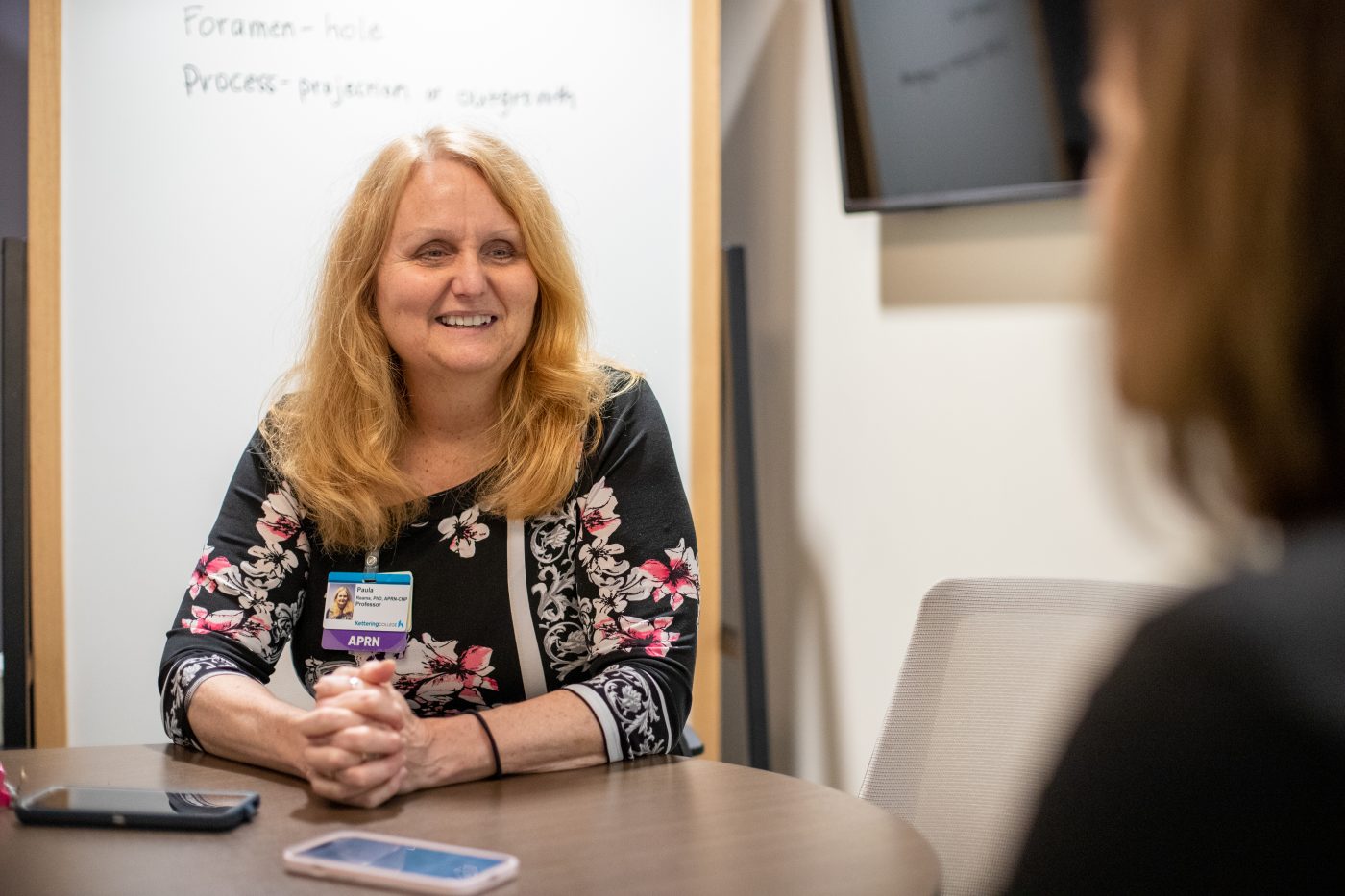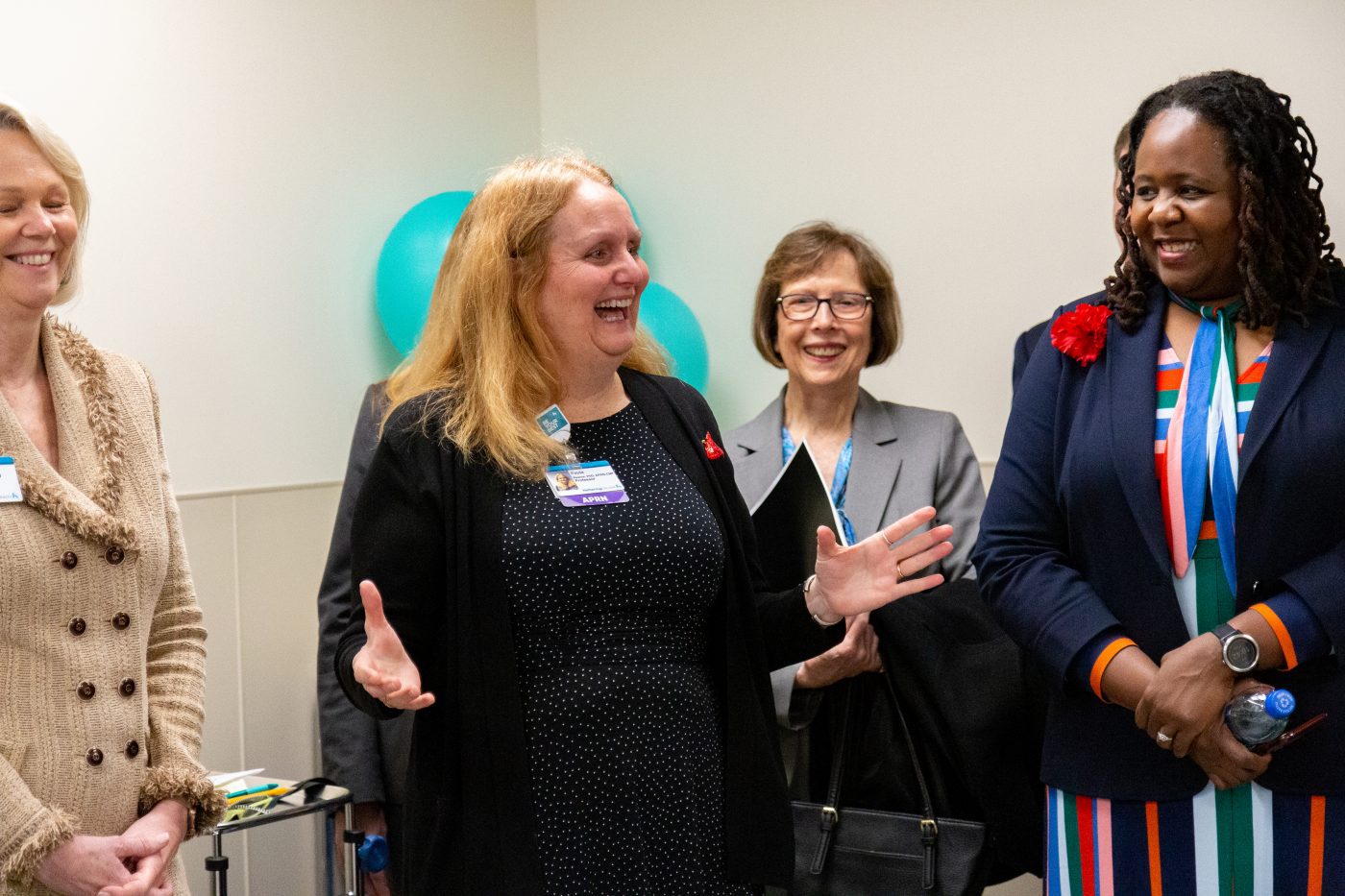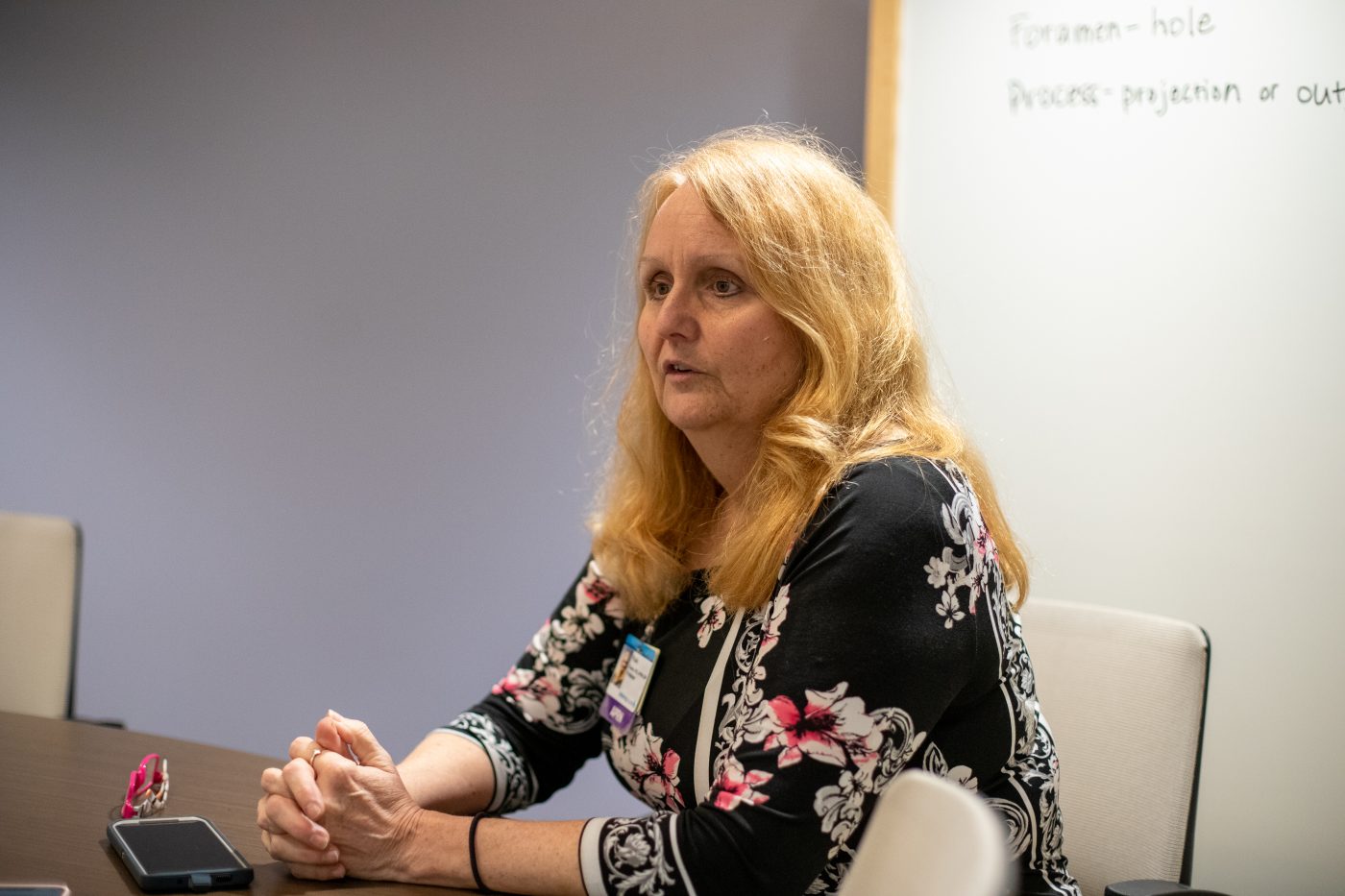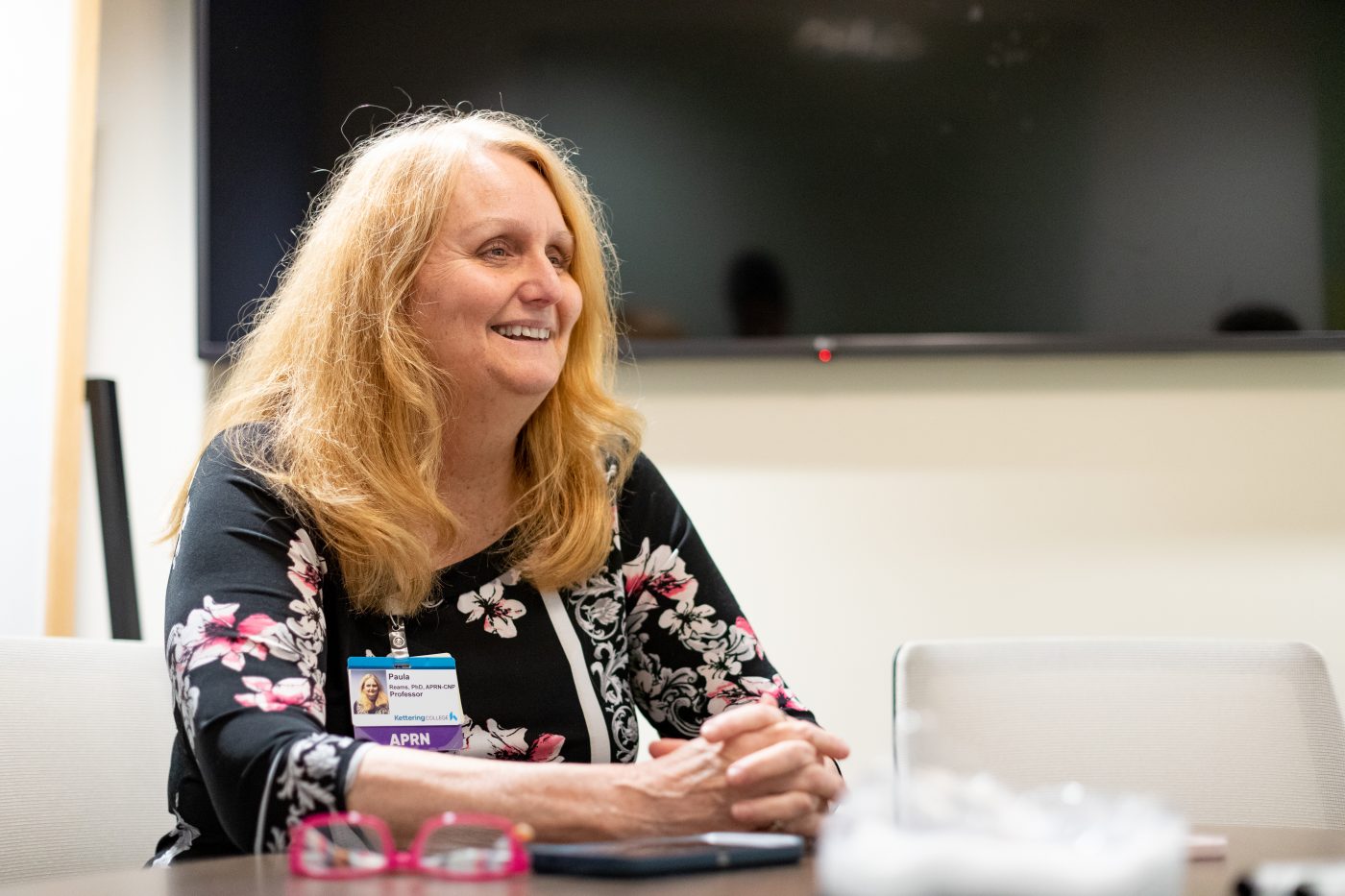Women’s History Month Spotlight: Dr. Paula Reams, Dean of Nursing

Dr. Paula Reams was raised not thinking twice about being an intelligent, driven woman who works outside the home. During the 1960s her mom had a career, which was not common during that time. As an occupational therapist, her mom worked at a tuberculosis hospital where patients remained for long periods of time. Paula saw how the work fulfilled her mom, and she soon followed the path to a career in healthcare.
She received her bachelor’s degree in nursing from the University of Cincinnati and began work as a nurse right away in neonatal intensive care, which she admits was difficult for her to witness being so young. Paula transitioned to working in pediatrics and discovered her love of teaching from having to teach parents about their children’s conditions.

She began working on her master’s degree in teaching in nursing education, got married, moved to Dayton, and had three children. She soon got a job as a head nurse, which is now called nurse manager. She was the youngest person on her staff, but the only one with a bachelor’s degree, so she got the job. She says she had to quickly learn how to lead effectively with grace, as she managed nurses older than she was with more experience.
Her desire to teach grew, so she sent out her resume to Kettering College. She got a call back immediately, asking her to come right after her shift for an interview. She got the job on the spot in 1987 and hasn’t left since. She taught in the associate degree nursing program for several years in her early days at Kettering College.
Paula soon found a life-changing mentor in Anna May Vaughan, Kettering College’s first nursing program director who returned to the college in the 1990s. The women grew a close connection, and Paula says now as the dean of nursing, she often asks herself, “What would Anna May do?” to help guide her and treat her students with the same thoughtful wisdom that Anna May had.
Paula remembers how Anna May viewed students from a spiritual perspective to help uncover what was needed to help them succeed. She often focused on servant leadership as a strong component in healthcare higher education. That resonated with Paula, and she decided to earn her doctorate in higher education leadership with a dissertation on service learning.
Thoughts on Women in Leadership and Women’s History Month

Paula says she, of course, thinks of everyone as equal and doesn’t think about gender, but she does add an interesting observation she has made about women in leadership, as she is one. The research she has read lines up with the experiences she has on a daily basis while serving with women in leadership roles as compared to men in leadership roles.
She has found that for women to lead together, they seek personal connection. She notes meetings are often started with small talk and catching each other up on their families and personal lives before they begin. In a culture that tells women to not be aggressive, confrontation tends to be harder for women than men, who typically have no problem being direct about what’s on their minds. She points out this trait doesn’t mean either gender is better or worse than the other. It does mean men and women have to work to understand each other to help find ways to overcome struggles that hold them back together.
Dr. Reams appreciates the differences men and women bring to leadership. She works daily with a nursing leadership team that consists of all women; however, when she works with the executive team, she is the only female. Navigating both experiences has entailed her observing, understanding, and leading in ways that embrace those differences rather than fight against them and allow people the space to be themselves.
Dr. Reams says it’s a shame that it’s hard to trace women’s history since women were intentionally kept out of the story, even though they have always done so much. She says, “Women didn’t get to vote until 1919, so they didn’t have a voice in anything, so there’s so much we just don’t know. Women have always been doing amazing things, but we just haven’t heard about them in the past because women didn’t write about because they weren’t allowed to, and they were too busy to write about it since they were doing everything for the men at home.”

When asked if she has ever encountered inequality because of her gender, she notes early on in her career she felt the condescension from doctors who treated nurses as less-than. She once worked with a doctor who kept calling her “honey.” She finally pulled her nametag closer to his face, and said, “Look, I have this big nametag here. My name is Paula.”
Print This Page